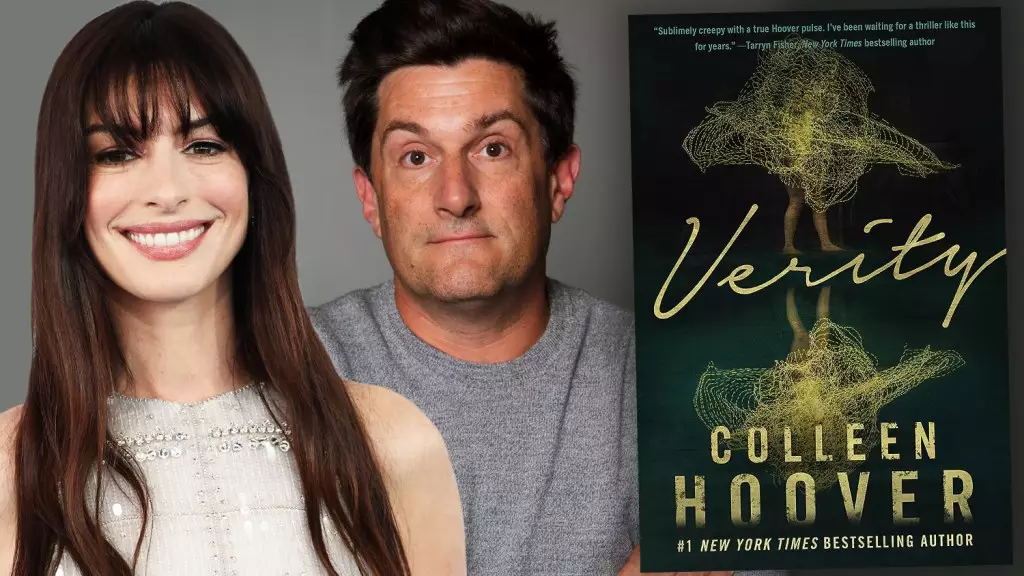Colleen Hoover’s novels have garnered massive popularity, but with great fame comes the challenge of translating that success to the big screen. The upcoming movie adaptation of Hoover’s thrilling novel *Verity* is poised to hit theaters on May 15, 2026, but will it manage to capture the nuance and complexity of its source material? While the casting choices are promising, they raise concerns about the fidelity and integrity of the adaptation.
High Expectations for Adaptations
Following the success of *It Ends With Us*, which featured the star power of Blake Lively and Justin Baldoni, expectations for *Verity* are unreasonably high. Fans of the book are apprehensive; can the filmmakers do justice to a story that intertwines themes of trauma, deception, and psychological complexity? It’s easy to get lost in the glitz and glamour of celebrity casting, but the soul of the narrative lies in its psychological intricacies and the moral ambiguities of its characters. Misstep here, and you risk another disappointing adaptation.
While having Anne Hathaway headline as Verity Crawford can attract attention, it also presents risks. Hathaway is an accomplished actress; however, her ability to embody a deeply troubled character demands more than star power. The narrative delves into the mind of Verity, who lies comatose with chilling truths lurking in her unfinished manuscript. The concern is that the allure of Hathaway might overshadow the darker elements that define the core of Verity’s story. Audiences might find themselves enamored with Hathaway’s performance, but does this alignment with star power potentially dilute the unsettling themes?
Casting Choices and Their Implications
Dakota Johnson as Lowen Ashleigh presents another layered possibility. Johnson has built her career navigating complex emotional landscapes, but her capability to portray the unraveling mental state of Ashleigh—caught between moral dilemmas and her own survival—is paramount. The chemistry between Johnson and Hathaway is essential; if they fail to carry the tension of their characters’ conflicting motives, the essence of the story could lose its chilling grip. It’s crucial for the actors to successfully convey the psychological warfare between their characters without leaning too heavily on their established star personas.
Furthermore, the casting of Josh Hartnett as Jeremy, Verity’s husband, is interesting but poses additional challenges. Jeremy’s character is pivotal, teetering on the line between supportive husband and possibly complicit enabler. Hartnett’s prior work has shown his flair for complex roles, yet one wonders if he can navigate the shades of gray that this character embodies. Each cast member must approach their roles with a careful understanding of the book’s underlying themes—something the pressure of box office success can easily dilute.
Behind the Scenes: A Mixed Bag
Under the direction of Michael Showalter, who previously worked with Hathaway, the film adaptation carries a hint of promise but also a shadow of doubt. Adapting a narrative as richly layered as *Verity* requires an understanding and respect for the complexity of the characters involved. The initial hiring of multiple screenwriters—Antosca, Seitz, LaManna, Honley, Maguire—raises questions about creative coherence. Each writer brings their unique voice, but without a singular vision, the screenplay can become muddled, risking the film’s narrative focus. For the audience, a disjointed script could render the psychological tension ineffective, leaving much to be desired.
The involvement of producers from various backgrounds might suggest an expansive reach but could similarly indicate that the film’s vision lacks clarity. It’s crucial that the adaptation prioritizes authenticity and emotional resonance over the usual market-driven motives. If the production team emphasizes commercial viability, the dark, psychological tones of *Verity* might be sacrificed in favor of a more palatable narrative, resulting in a lackluster film interpretation that fails to captivate audiences familiar with Hoover’s unique storytelling.
Potential Impacts on Colleen Hoover’s Legacy
Lastly, there’s the risk that *Verity* could negatively affect Colleen Hoover’s literary legacy. A poorly received film adaptation could overshadow the nuanced storytelling present in her books. Adaptations have the potential to introduce more people to the source material; however, when mismanaged, they can just as easily diminish its reputation. As Hoover looks to translate more of her works—such as *Regretting You*—into film, the fate of *Verity* may well determine the trajectory of her brand in Hollywood. If audiences depart from the theaters disappointed, the narrative around Hoover’s capabilities as a novelist may shift negatively, affecting future adaptations and her overall standing in contemporary literature. In sum, the risks are substantial, and as the release date approaches, the stakes for all involved continue to rise.


Leave a Reply